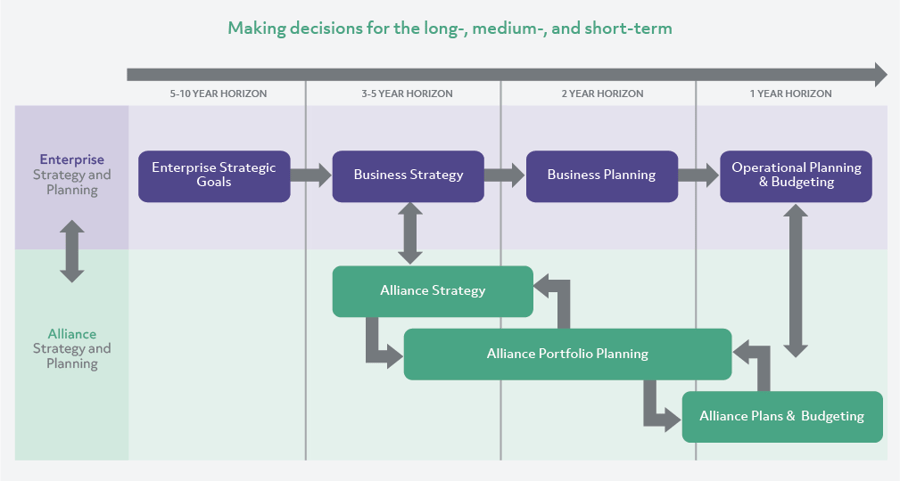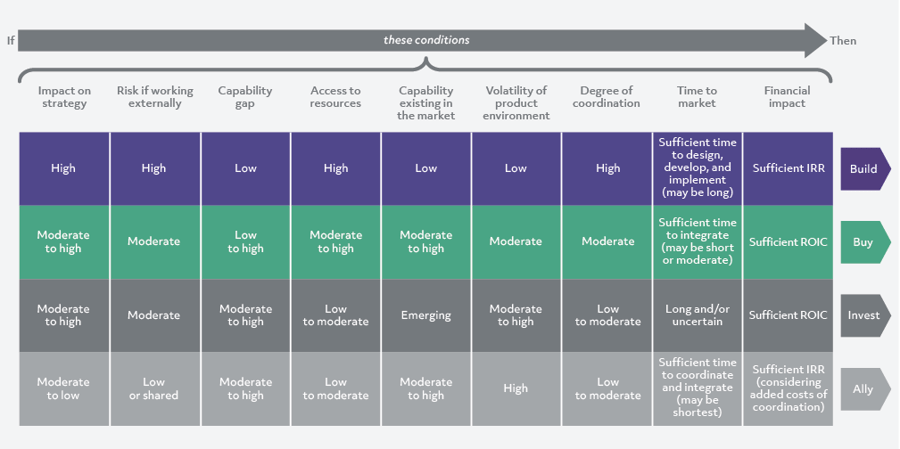
When to build, buy, invest, or partner?
Amidst rapid growth in the fintech space, start-ups and corporations alike seem to be making the decision to build, buy, invest, or partner for capabilities opportunistically, without holistic consideration of the implications of those decisions. Companies executing growth strategies in this space should consider two simple lessons.
First, take a structured approach
A simple framework helps tee up the pros and cons of the options at hand, and can lead to better outcomes. Further, following an agreed framework for making these decisions typically makes the conversations and internal negotiations immensely more productive. At Vantage, we find the framework below to be very helpful.
Second, evaluate the decision over time
Companies that are successful at this make smart initial decisions, and monitor the marketplace over time to ensure that decisions made yesterday are driving optimal outcomes today, and will enable further success tomorrow.
Consider for a moment the case of automotive manufacturers in the early 2010s, and the pressing consumer demand for seamless integration of smartphones and vehicle infotainment systems. Surely sensing an opportunity for competitive differentiation, and noting a lack of strong third-party capability in the market, nearly every major automaker elected to build their own internal capability.
In the years that followed, JD Power’s reports catalogued seemingly endless complaints from consumers, as automakers’ homegrown systems failed to meet expectations. The technical aspects of integrating with devices proved enormously challenging for automakers. Meanwhile, big technology invested heavily in their own solutions.
As the decade wore on, big tech established viable alternatives to automakers’ internal products, seamless device integration evolved from a product feature to an absolute necessity, and automakers one-by-one made the strategic decision that native infotainment systems do not provide competitive advantage and aren’t strategically important. Further, automakers-some more quickly than others-came to realize that big tech was simply better at this. Flash forward to today, and nearly every major automaker integrates with, or relies solely on, Apple / Alphabet and/or Google.

A structured approach for connecting alliances strategy to broader enterprise strategy, and ongoing and intentional monitoring of the market environment, are essential elements of strategy execution in rapidly evolving marketplaces.
This piece is part of our Fintech and Financial Services series.
.png?width=512&height=130&name=vantage-logo(2).png)



